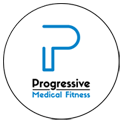
Shoulder Pain Can Limit Daily Activities – Physical Therapy Can Help
Shoulder pain can affect many areas of your daily routine. Whether you are reaching for something on a shelf or struggling to find a comfortable sleeping position at night, shoulder pain can be a constant, unwelcome companion in your daily life. Aching pain in your shoulder and neck can show up as a result of an injury, making you feel as if your shoulder is immobilized.
There are a range of conditions that may cause someone to experience shoulder pain. The severity of the pain can vary widely from the sudden discomfort of a pulled muscle to the agonizing, constant pain of bone-on-bone friction resulting from arthritis.
No matter the cause of your shoulder pain, our Progressive Medical Fitness physical therapy team is dedicated to treating your pain using natural pain management techniques. Contact our Northport office to learn more.
Individualized treatment plans for shoulder pain relief
You can find successful relief for your shoulder pain in a natural, non-surgical way through physical therapy and without the need for potentially harmful pain medication.
Our certified physical therapy team at Progressive Medical Fitness have treated a multitude of conditions to relieve the resulting shoulder pain. Often, patients find improvement in mobility and pain relief in just a few short sessions – and in some cases, less!
Our team of physical therapists are experts in movement and mobility, utilizing a variety of diagnostic techniques to identify the condition causing your pain. During your evaluation, we will consider your medical history and lifestyle while assessing the mechanics, mobility and strength of your shoulder joint.
Once we have determined the cause of your shoulder pain, we design an individualized physical therapy treatment plan to suit your specific condition and level of fitness.
Your individualized treatment plan will include a variety of modalities to manage and relieve your pain. Gentle manual therapy helps to restore normal joint mobility, promote improved circulation, and ease soft tissue restrictions. An individualized therapeutic exercise routine, specifically for your condition, will restore strength, and the correct sequence of muscle activation around the shoulder joint.
As the final phase of treatment, we teach you techniques to improve the strength of the muscles surrounding the shoulder to prevent recurrence of future shoulder problems.
Causes of shoulder pain
The shoulder has the greatest range of motion of all of our joints, so it is not surprising that shoulder pain and injuries are common and very uncomfortable.
The shoulder is a “ball-and-socket” joint where the head of the humerus (upper arm bone) meets the scapula (shoulder blade). The bones are protected from rubbing together by a thick layer of cartilage on the surface of the bones.
Muscles and ligaments help make up the joint. Tendons attach the bones in the shoulder to a set of bones, known as the rotator cuff. The bursa is a sac of fluid that cushions shoulder parts as they move. If something goes wrong with the complex interaction of bones and tissues that allow for the great degree of shoulder mobility, pain is often the result.
Depending on the condition causing your pain, the type of pain you feel in your shoulder can vary. For example, impingement typically causes pain as you raise your arm up, with the onset of pain at a certain point in the range of motion.
On the other hand, some conditions result in a near constant pain. A degenerated shoulder may cause a persistent ache every time you move your arm in certain directions. Acute injuries can result in sudden and intense pain that make your shoulder nearly immobile.
Conditions that cause shoulder pain
The complex nature of the shoulder joint and the fact that it is one of the most used joints in the body, mean that it is at higher risk of injury.
Some common causes of shoulder pain include, but are not limited to:
Arthritis
Osteoarthritis and rheumatoid arthritis are the two main forms of arthritis that affect the shoulder area. Age and overuse frequently cause wear and tear on the cartilage of the shoulder joint which results in osteoarthritis. When the body’s immune system attacks its own tissues, including the shoulder joint, it causes pain and inflammation and is called rheumatoid arthritis. Both of these ailments result in difficulty performing normal, daily tasks due to painful loss of motion and weakness of the muscles of the shoulder.
Frozen shoulder
Adhesive capsulitis, commonly referred to as frozen shoulder, occurs if your arm has been immobilized for a long period of time, such as in a cast or sling, or if you have been on bed-rest for an extended period of time. While this condition is more common in women in the 40-60 age range, there are some ethnicities that are also predisposed. Frozen shoulder describes the painful and severely limited motion of the joint that results with a tightening of the shoulder capsule.
Impingement
Impingement typically occurs when the rotator cuff tendon and bursa are compressed against bone. Inflammation of the rotator cuff muscles and tendons causes pain as you raise your arm. Typically, pain occurs as you lift your arm at or above 90 degrees.
Tendinitis
Overuse of the shoulder joint due to work-place demands, overhead work/activity or participating in a sport can result in tendinitis.
Additionally, the tendons are more at risk for injury due to improper posture. The natural body mechanics of the tendons of the shoulder are negatively affected by poor posture. The tendons can be come inflamed, resulting in painful swelling and stiffness of the shoulder joint.
Rotator cuff tear
The rotator cuff is a group of 4 muscles that come together as a tendon to form a covering around the head of the upper arm bone – the humerus. The rotator cuff is responsible for correctly guiding the motion of the shoulder joint. Many factors can result in a partial or completely torn rotator cuff such as injury, repetitive stress, aging or improper posture. In some severe cases, surgery may be required. But in many cases, treatment through physical therapy can manage the pain and improve the strength of the rotator cuff to compensate for the partial tear. If your condition requires surgery, physical therapy will be a key aspect of your treatment plan.
Rotator cuff tears are a common cause of shoulder pain
While rotator cuff injuries sometimes require surgery if they are severe enough, there are many cases where physical therapy treatments are preferable to surgical intervention. According to the American Academy of Orthopaedic Surgeons, 80% of patients with rotator cuff tears have pain relief and improved shoulder function nonsurgical treatments, such as physical therapy.
Studies show that physical therapy produces outcomes equal to surgery. “A recent study from Finland asserts that when it comes to treatment of non-traumatic rotator cuff tears, physical therapy alone produces results equal to those produced by arthroscopic surgery and open surgical repair,” as stated by the American Physical Therapy Association.
As part of this study, a follow-up was conducted on 167 patients who were only treated with physical therapy for their rotator cuff injury. This study demonstrated that non-invasive treatment, such as physical therapy, can be considered as the primary treatment option for rotator cuff injury.
The muscles and tendons surrounding your shoulder joint, that ensure proper motion of the shoulder, together are called the rotator cuff. The rotator cuff is at higher risk of being torn or injured, due to overuse such as repetitive overhead motions performed in sports (for example: tennis) or the work-place (for example: carpentry or manufacturing.)
Those who suffer a rotator cuff injury or “torn shoulder” commonly report a dull ache deep felt deep in the shoulder, arm weakness, sleep disruption due to pain and crackling sensations when the arm is in certain positions. At Progressive Medical Fitness, our natural and non-invasive therapeutic methods can help heal your rotator cuff injury and provide shoulder pain relief.
Our Progressive Medical Fitness physical therapy team will begin your treatment with a thorough physical evaluation and diagnostic assessments to determine the cause of your shoulder pain. If a rotator cuff tear injury is identified, we will create an individualized treatment plan to address your specific condition.
Begin today
Don’t let shoulder pain limit your experience of life! Our certified Progressive Medical Fitness physical therapists will relieve your shoulder pain so you can return you to your normal, daily routine and activities.
Request your appointment with our Northport physical therapy team to begin taking the first steps toward recovery and living a pain-free life.
